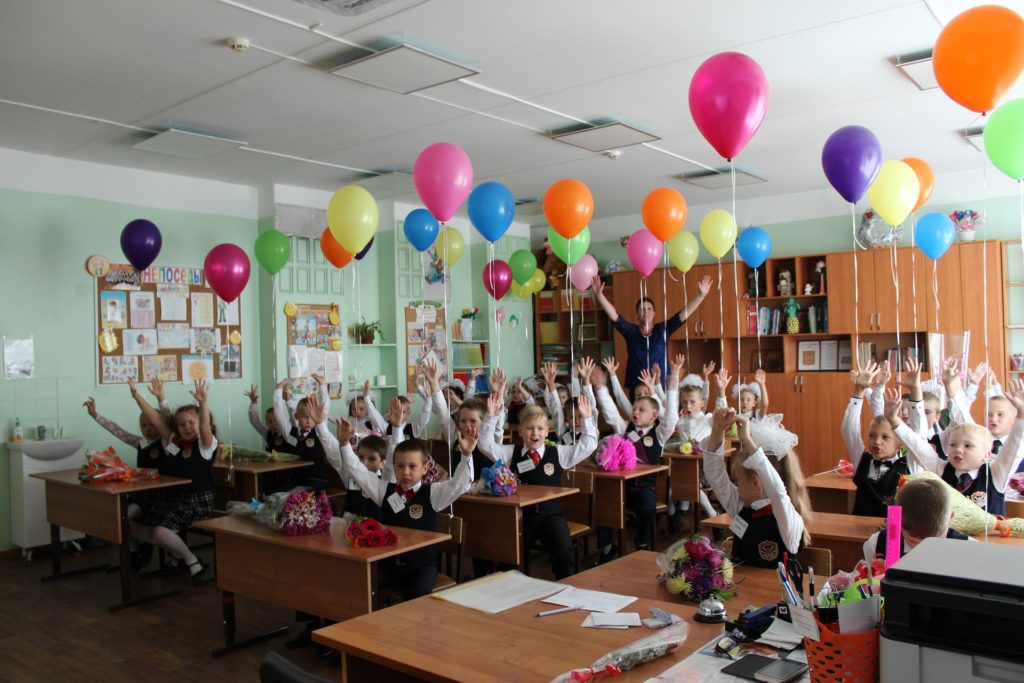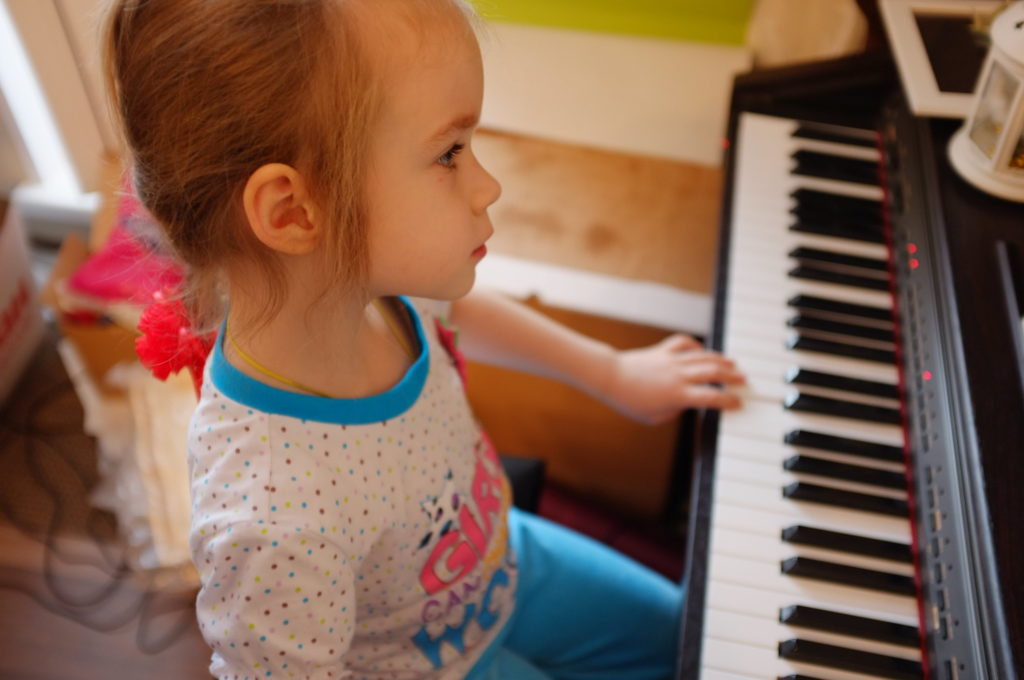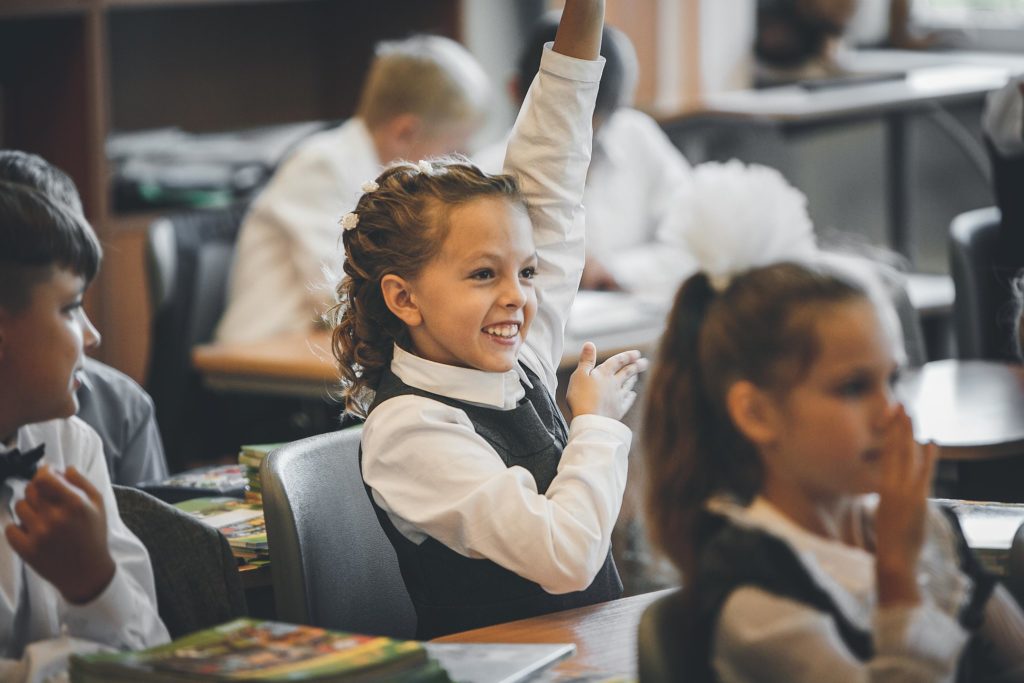Schools In Russia Posted by Nadya on Aug 31, 2020 in Russian life, Traditions, Vocabulary, when in Russia
The First of September (пе́рвое сентября́) is Knowledge Day (День зна́ний) in Russia. It is the official school start date. Pupils on this day return to schools (шко́лы), colleges (ко́лледжи), and universities (университе́ты). You can read more about how Russian children and their parents prepare for school and celebrate this day here.
Today we will talk about a typical Russian school. “Шко́ла” (noun, feminine) sounds a bit similar to the English “school”.
Both terms are derived from the Greek “σχολή” (scholē). But the word came to the Russian language through the Polish “szkoła” (schola).
Я так ра́да верну́ться в шко́лу! – I am so excited to go back to school!
School in Russia is an institution for general (о́бщее) education (образова́ние). It also can be applied to additional educational institutions as music (му́зыка), art (иску́сство), sports (спорт) schools with the focus on developing children’s creative potential (тво́рческий потенциа́л).
Мой сын хо́дит в худо́жественную шко́лу по суббо́там. – My son goes to art school on Saturdays.
The full program (програ́мма) consists of eleven years of schooling. There are three levels in general education: elementary school (нача́льная шко́ла) – grades (кла́ссы) 1 to 4, middle school (сре́дняя шко́ла) – grades 5 to 9, and high school (ста́ршие кла́ссы) – grades 10 and 11.
Нача́льная шко́ла нахо́дится на пе́рвом этаже́. – The elementary school is on the first floor.
After the ninth, students (ученики́) may choose to continue schooling (учёба в шко́ле), go to college, or get a job. At the end of the last grade, students take exams (экза́мены) in some subjects (предме́ты). After successfully passing them, a Certificate of Basic General Education (“Аттеста́т об О́сновном О́бщем Образова́нии”) (nine years completed) or Certificate of General Education (“Аттеста́т о Сре́днем О́бщем Образова́нии”) (eleven years completed) will be awarded.
Вы реши́ли, чем заня́ться по́сле оконча́ния шко́лы? – Have you decided what to do after high school graduation?
For the first year, children are accepted from 6-7 years old, depending on the individual development of each child.
Ва́ня пошёл в шко́лу с пяти́ лет. – Vanya started school at the age of five.
Students of each grade are divided into classes (кла́ссы). Each class usually has up to 30 pupils (ученики́) who always go to lessons (уро́ки) together throughout the 11 years. Each class is named with a letter, for example, 2 “B”.
Да, э́та де́вочка у́чится в на́шей шко́ле в восьмо́м “Е”. – Yes, this girl is in our school in the eighth “E”.
The state school curriculum (шко́льная програ́мма) is usually pretty fixed; not a big choice of subjects are available to study besides the required onesglocke@transparent.com.
Жаль, что в на́шей шко́ле нет уро́ков психоло́гии. – Too bad there are no psychology lessons in our school.
Private schools (ча́стные шко́лы) are uncommon in Russia. They emphasize learning some specific skills (на́выки) in foreign languages (иностра́нные языки́), sciences (есте́ственные нау́ки), physics (фи́зика) and mathematics (матема́тика), etc. In government-funded specialized schools – lyceums (лице́и) and gymnasiums (гимна́зии) – in-depth study of individual subjects is also provided.
По́сле 9 кла́сса меня́ перевели́ из шко́лы в лице́й. – After the 9th grade, I was transferred from school to lyceum.
The Russian school year comprises four terms with vacations in between and extends from September 1 to the final week of May, with exams in June.
Пришло́ вре́мя верну́ться в шко́лу. Уда́чи всем ученика́м в но́вом уче́бном году́! – It’s time to go back to school. Good luck to all students in the new school year!

Build vocabulary, practice pronunciation, and more with Transparent Language Online. Available anytime, anywhere, on any device.






